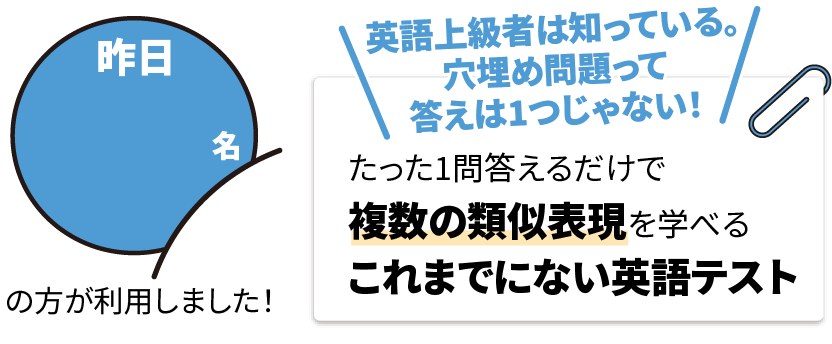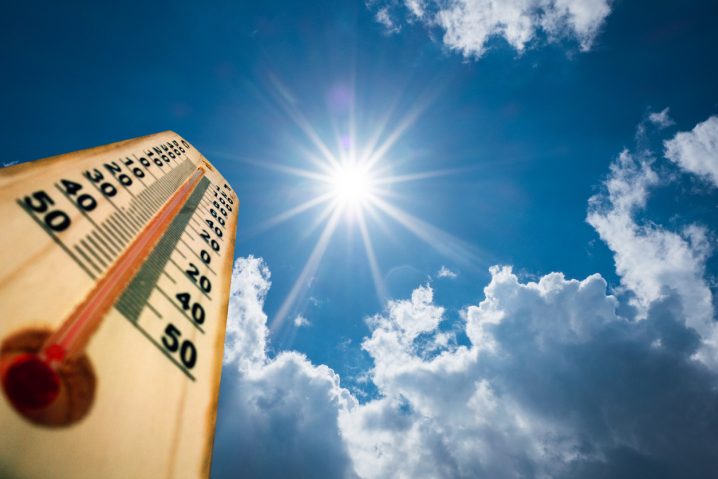Hello this is Simon,
As I’m sure you are aware, recently it has been roasting outside.
It has been absolutely boiling. Not only hot, but sticky as well. When the weather is muggy like this, you could even say it is steaming, just like in the tropics.
I feel it when I walk to the station. I open my front door and straight away get hit by a wall of heat. It’s sweltering outside, like a sauna.
I only get halfway to the station, and I’m already dripping with sweat. By the time I get there I’m sweating like a pig, and my shirt is drenched with sweat. The other day I went out in the car. It was another blazing hot day, an absolute scorcher.
It was so hot that you could fry an egg on the bonnet of your car. I hopped in the car and it was like an oven inside. As I sat there melting, while I waited for the air conditioner to start working, I thought to myself, “How am I going to survive this heat?…
Every year it feels like it’s getting hotter and hotter.
It seems we talk about the summer heat a lot these days. So, keeping in with the theme of summer, I thought I’d talk about some words and phrases that we can use when talking about this hot summer heat.
roasting / boiling / steaming / sweltering / blazing hot
“Roasting” means very hot. It is also often used to imply the weather being very dry and hot. It may sound strange in this humid weather to say it is “roasting outside”, but if you can feel the heat of the sun beating down on you then “roasting is fine.
“Boiling” simply means very hot and can be used to describe both a humid heat and a dry heat.
“Steaming” means very hot, and as you can probably guess implies humidity as well.
“Sweltering” means very hot and uncomfortable. Like “boiling” it can be used to describe both a humid heat and a dry heat. It comes the verb “swelter” which means to feel very hot.
“Blazing hot” means very hot and can be used to describe both the weather and the sun. “Blazing” comes from the verb “blaze” which means to burn strongly and brightly (e.g. The forest fires were blazing all night. / The sun is blazing outside.)
muggy / sticky
“Muggy” means unpleasantly warm and humid. It is used to describe the weather (e.g. It is very muggy today.)
“Sticky” means the same as “muggy” and is used to describe the weather. It can also use to describe our own feeling of being “sticky” in which we are hot and sweaty, sometimes causing our clothes to “stick” to our skin (e.g. The weather has been very sticky. / I feel very sticky in this heat.)
like an oven / like a sauna / like in the tropics
“Like an oven” means very hot. It can be used to describe both the weather and the temperature of an enclosed space such as a room or a vehicle.
“Like a sauna” means very hot. It can be used to describe both the weather and the temperature of an enclosed space such as a room or a vehicle. It is often used to describe something that is both hot and humid.
“Like in the tropics” means very hot and humid. It is used to describe the weather. “Tropics” in Japanese means 「熱帯」, so I think its quite easy to imagine the kind of climate this phrase describes.
dripping with sweat / sweating like a pig / drenched with sweat
“Dripping with sweat” means to be sweating so much that the sweat is dripping from your body.
“Sweating like a pig” is an unfortunate sounding phrase which means to be sweating a lot. It is not a phrase that should be used to describe a woman. We also often say “sweating profusely” to mean sweating a lot. The bizarre thing about this phrase is, apparently pigs don’t actually sweat.
“Drenched with sweat” means that your clothes have become very wet with sweat. “Drenched” comes from the verb “drench”, which means to make someone or something very wet.
** For ladies who want to sound a little more refined, we have the verb “perspire” which is a more polite way to say “sweat” (e.g. This heat is making me perspire.) A long time ago, back in the 1800’s the verb “sweat” was considered impolite if used to describe people. There used to be a saying back then: “Animals sweat, gentlemen perspire and ladies just glow.” **
scorcher
A “scorcher” means a very hot day (e.g. Tomorrow will be a real scorcher.) It comes from the verb “scorch” which means burn the surface of something. There is also an adjective “scorching” which means very hot (e.g. It is scorching today. / The sun is absolutely scorching.)
so hot that you could fry an egg
“So hot that you could fry an egg” is an idiom which means “very hot” and is used to describe the weather and also objects. There are a few variations of this phrase. A couple of common ones are:
“It’s so hot that you could fry an egg on the pavement.”
“It’s so hot that you could fry an egg on the hood of your car.”
“My computer is so hot that you could fry an egg on it”
melting
To “melt” means to turn from a solid to liquid, often a result of an external heat source. Of course, people can’t actually melt, but “to melt” or “melting” can be used as a metaphor for being extremely hot (e.g. It was so hot yesterday, I felt like I was beginning to melt.)
wall of heat
The phrase “wall of heat” can be used to describe how it feels to walk from a cool room outside into a climate where the air itself is very hot. You feel the sudden change in temperature when you walk through your door into the hot outside air.
It looks like we’ll have quite a few more hot days ahead of us. If you picked up some new words or expressions from this, please try them out if you can, since the heat seems to be one of the first things we mention when we meet someone for the first time on any particular day.
See you next month, and don’t get beat by the heat!

Hello! My name is Simon.
I am from New Zealand, and have been living and teaching English in Japan since 1999.
My hobbies include movies, playing the guitar, gardening and hiking.
※このブログでは英語学習に役立つ情報アドバイスを提供していますが、本ブログで提供された情報及びアドバイスによって起きた問題に関しては一切、当方やライターに責任や義務は発生しません。
※ここでの情報や助言を参考に英文を書いたり下した判断は、すべて読者の責任において行ってください。ここに掲載されている記事内の主張等は、個人の見解であり当社の意見を代弁・代表するものではありません。








 (8 イイネ!が押されています)
(8 イイネ!が押されています)



























コメントする